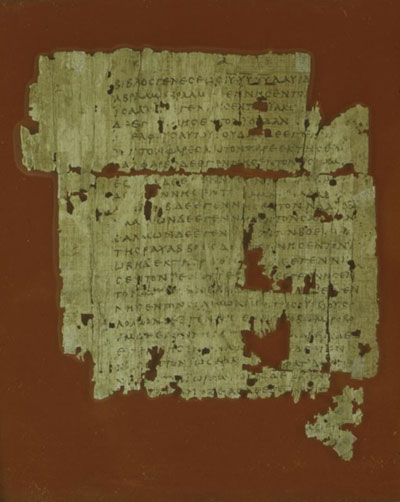
On January 11, 1897 the Messrs. Bernard P. Grenfell and A.S. Hunt set a contingent of seventy men and boys to work on the excavation of a low rubbish heap just outside the ruins of Oxyrhynchus. This site, once the capital of the Egyptian nome or province bearing the same name, had appealed to Grenfell and Flinders Petrie as a likely area for field work sponsored by the Egyptian Exploration Society, one of whose contributing members was the University Museum. Situated 170 miles south of Alexandria on an ancient military road running along the west bank of the Nile, Oxyrhynchus could boast two Christian churches in the third century A.D., some of whose members suffered persecution during the reign of Diocletian. At such times the town dump heaps received quantities of literary texts torn from the libraries of well-to-do Christian martyrs. Realizing the ancient trash piles would be more rewarding than the often-plundered town, the excavators proceeded to uncover a mine of public and private documents dating to the Graeco-Roman period and later.
During the first week’s worth the men discovered a papyrus fragment of a quire once forming part of a Biblical codex. In Greek unical letters this presents verses 1-9, 12, and 14-20 of chapter one of the gospel of Saint Matthew. Dated by modern analysis to the third century A.D., it is one of the oldest extant copies of a portion of a New Testament gospel. This important document now rests in the collections of the University Museum.
